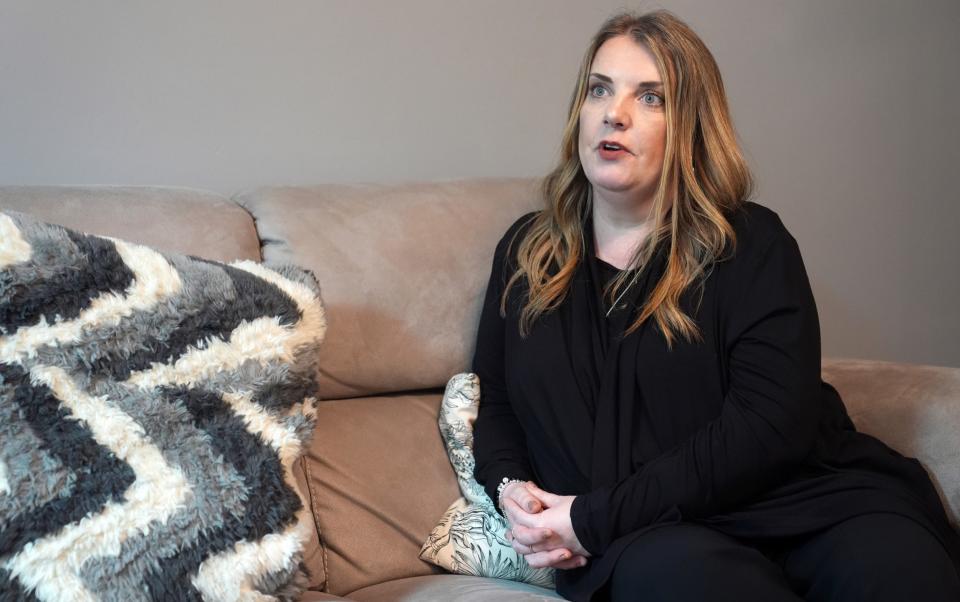A mother said that her 13-year-old daughter died in pain from sepsis in hospital because of a “pervasive belief” in the NHS that “parents are an irritant and they’re wrong”.
A coroner on Friday ruled that neglect by NHS staff contributed to Chloe Longster’s death, and that there were several key missed opportunities to save her life.
The missed opportunities identified in the inquest include delays to her sepsis screening and treatment, and delays to prescribe and administer the correct antibiotics.
Chloe, from Market Harborough in Leicestershire, was taken by her mother to the emergency department of Kettering General Hospital in Northamptonshire on Nov 28, 2022 with “severe” pain in her ribs.
She had been suffering with a cough and other mild cold-like symptoms in the few days prior to her death, but the illness “didn’t interrupt her usual activities”, Chloe’s mother, Louise Longster, said.
In hospital, her condition deteriorated and she was later transferred from the paediatric ward, Skylark, to the intensive care unit (ICU), where she was intubated and she died the following morning after about 30 minutes of CPR while she was in cardiac arrest.
Speaking before the five-day inquest began, Ms Longster told the PA news agency she felt “powerless” in the 18-and-a-half hours Chloe was in hospital.
“I really believe Chloe died because there is a pervasive belief that parents are an irritant and they’re wrong,” she said.
“There needs to be empathy and compassion when dealing with especially sick children.
“Chloe was voiceless for that period of time. I was completely powerless, as was her dad.”


It comes after hospitals across the country rolled out Martha’s Rule earlier this year, in which families of patients will be able to ask for a “rapid review” of their loved one’s hospital care 24 hours a day, seven days a week.
The rule was implemented after Martha Mills died from sepsis owing to failings in her care at King’s College Hospital in London.
Chloe’s mother told the inquest at Northampton Coroner’s Court on the first day of evidence: “Chloe asked me on Skylark if she was going to die. It’s haunting that the 13-year-old was the one that was right. It’s devastating.”
Chloe’s chest x-ray showed “consolidation” to the lower left lung, where there is solid material rather than air, which made doctors initially believe that she had a chest infection or pneumonia.
The family’s solicitor, Rachel Young, made submissions to the coroner, including that a “sequence of delays” and “crucial and significant missed opportunities” were present in Chloe’s care.
She added: “The evidence is clear – a sepsis screening did not happen when it should have taken place.”
In a narrative verdict read to the court, Ms Lomas, said: “Between 00.15 and 00.40 there were signs of septic shock. Recognition of that should have prompted immediate action.
“There were several missed opportunities to recognise Chloe’s deteriorating condition. The trust recognised those missed opportunities, they have stated there were shortcomings in care both medically and in nursing.”
“I do accept on balance that Chloe’s condition, if identified earlier, could have been managed and would have altered the outcome.
“Her death was contributed to by neglect. There were repeated missed opportunities to recognise and respond to her deteriorating condition.”
Chloe’s blood pressure was recorded for the first time on the system nearly eight hours after she arrived at the hospital.
Ms Lomas said that had the blood pressure been recorded earlier, her Paediatric Early Warning Score (PEWS) would have triggered a red flag for sepsis.


A nurse who later recorded observations did not start the sepsis screening tool and could not articulate why she did not, but agreed that she should have done, Ms Lomas told the inquest.
In a pen portrait from Chloe’s family which was read to the inquest, they said she was an “exceptional human being” who was “born to a family that loved her so very deeply”.
The statement, read by Ms Lomas, said: “She was a shining example to others with a heart of gold.
“She saw the world through a lens of kindness. If only the world could have been kinder back. If only in her time of need she was shown the same compassion.”
Mrs Longster said Chloe enjoyed dancing and doing gymnastics, was “very healthy” aside from having mild asthma, and had never been admitted to hospital before.
Following the conclusion of the inquest on Friday, Ms Longster said in a statement: “While nothing can make up for the loss of Chloe, we are pleased with the coroner’s findings of neglect as part of her narrative conclusion. There was a catalogue of missed opportunities in Chloe’s care.”
Julie Hogg, the group chief nurse for the University Hospitals of Northamptonshire, said: “We offer our deepest condolences to Chloe’s family for their loss. We are sorry that we failed to offer Chloe the care she deserved – we should have done more.
“In the two years since Chloe died our teams have worked hard to make significant improvements, including our management of patients with sepsis and those who are not getting better.
“We have also increased our staffing levels and improved the way we communicate with our patients and their families. We realise there is still more to do but we are committed to ensuring that every patient receives the best care.”
Ms Lomas concluded the inquest by addressing the family and said: “Chloe’s loss is tragic. You, through the pen portrait, presented a picture of a wonderful child who had so much to give. I pass on my condolences in respect of that.”
Broaden your horizons with award-winning British journalism. Try The Telegraph free for 3 months with unlimited access to our award-winning website, exclusive app, money-saving offers and more.
